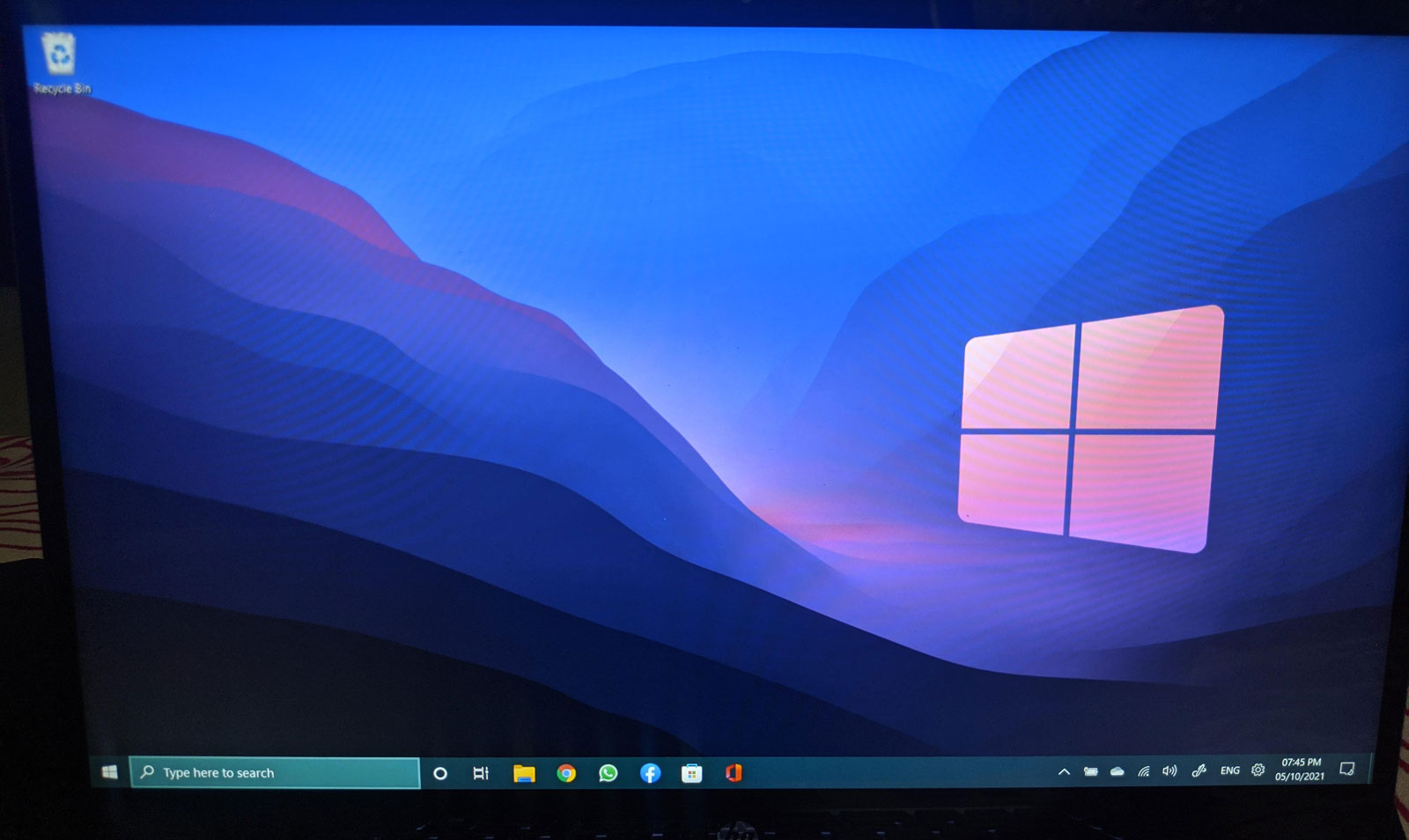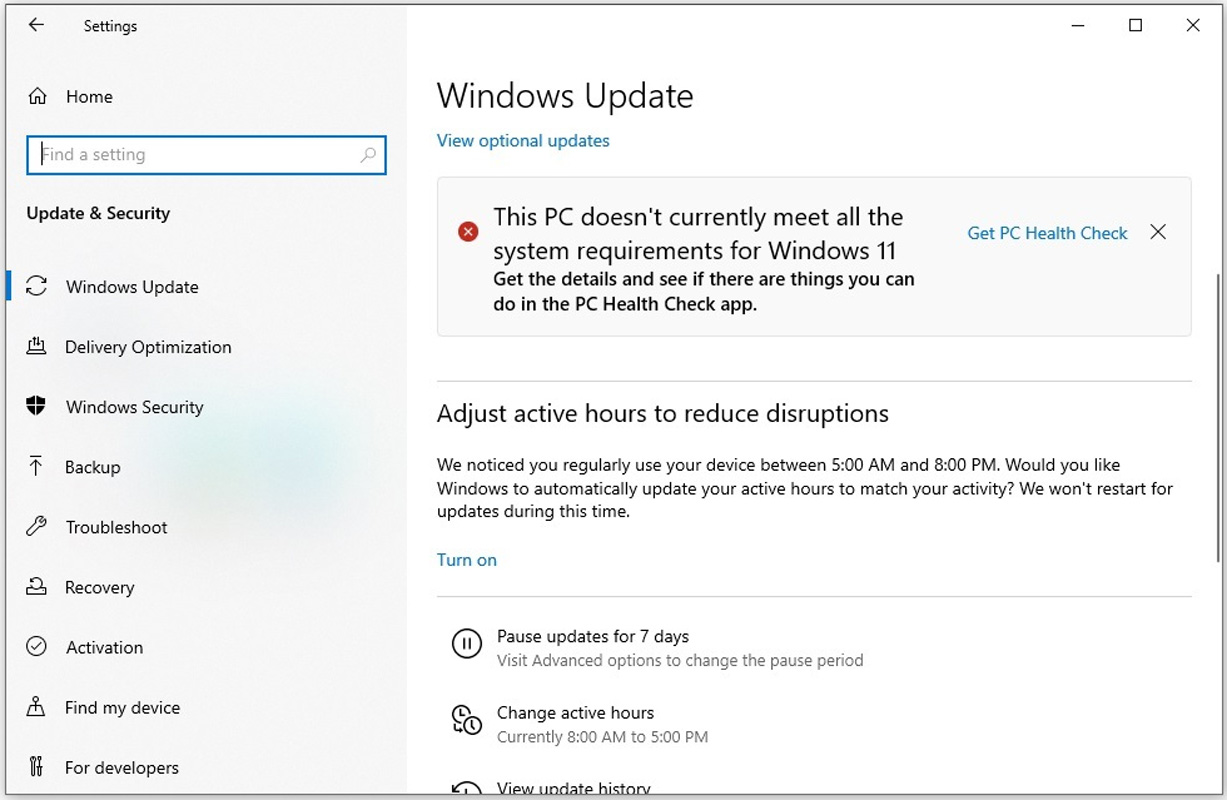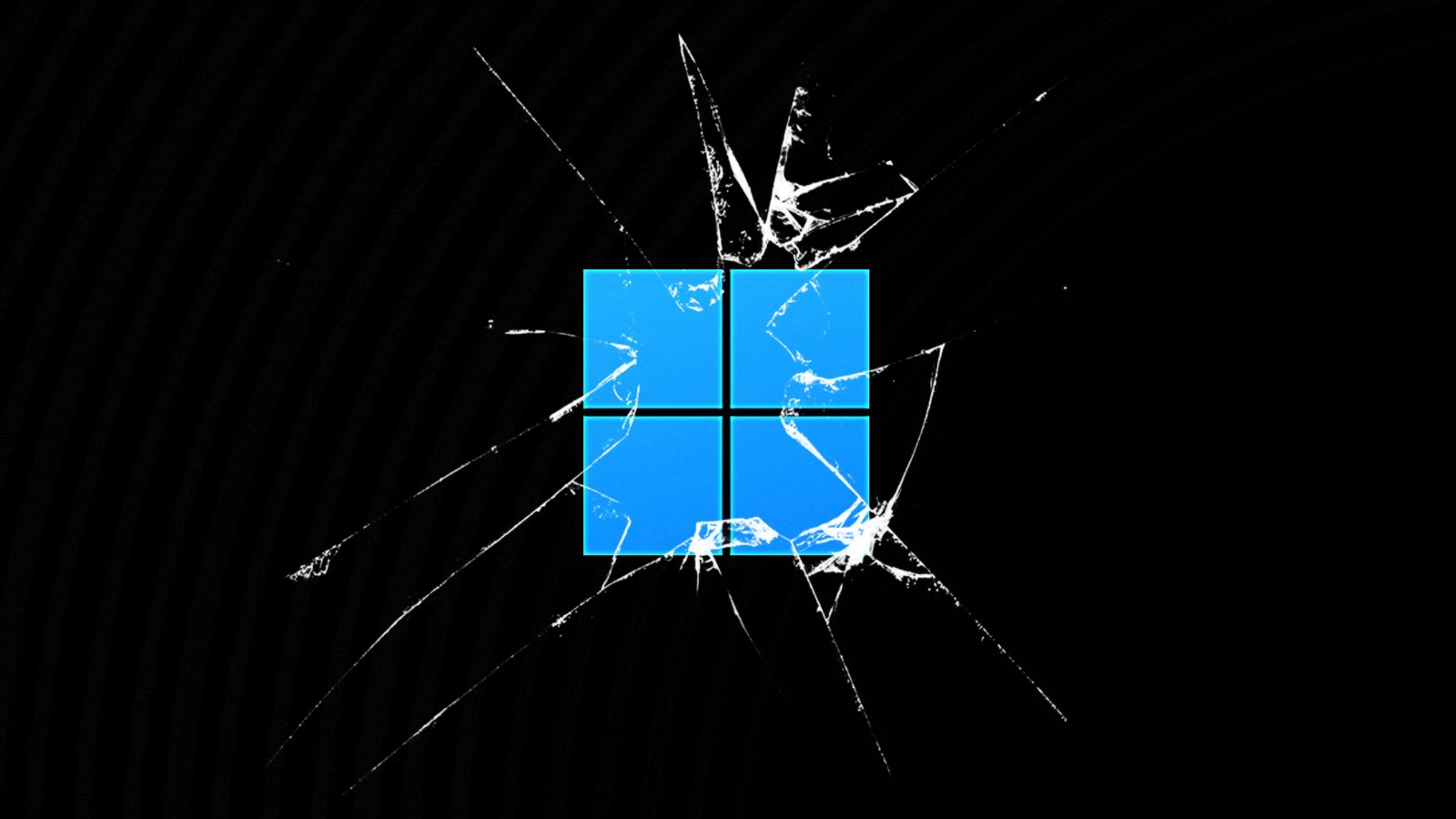Windows 11 is officially released and users are facing various issues and issues preventing them from upgrading or using the new operating system properly. Below, we’ve rounded up eight known issues affecting Windows 11 and when they should be fixed.
As with any major feature update or new version of Windows, there are bound to be some software and hardware incompatibilities that cause crashes or other instabilities.
To protect against these bad upgrade experiences, Microsoft will place backup locks on devices with known incompatibilities that prevent users from upgrading to Windows 11.
Below, we have listed the known backup crashes, common issues, and known issues that users experience with Windows 11.
Windows 11 uses the Windows 10 taskbar
After upgrading to Windows 11, some users report that they still have the Windows 10 taskbar rather than the revamped one designed for the new operating system.

For some people, this is disappointing because they prefer the new update, while others are happy because the new Windows 11 taskbar lacks some features of the Windows 10 taskbar.
These missing features are the ability to move the taskbar to the top and sides of the screen, the right-click context menu has been removed, and you can no longer unlink program windows.
Although Microsoft has not publicly acknowledged this bug, they are investigating it.
So far, users have provided various methods that you can use to try and restore Windows 11 taskbar.
Method 1: Remove the latest update from Windows 11, restart, and reinstall any available updates. Since Windows 11 is brand new, most people won’t have any updates installed and can move on to the next method.
Method 2: Open the PowerShell prompt as administrator and run the following command:
Get-appxpackage -all *shellexperience* -packagetype bundle |% {add-appxpackage -register -disabledevelopmentmode ($_.installlocation + "appxmetadataappxbundlemanifest.xml")}This PowerShell command was used to troubleshoot Start menu issues in Windows 10 and should apply to Windows 11.
Method 3: As a last resort, you can create a new user profile and the Windows 11 taskbar should be restored. However, this method will require you to copy all your data and possibly reinstall the apps in the new profile.
Windows 11 start menu does not open
People report that the Start menu no longer works after upgrading to Windows 11. When they try to use it, it just doesn’t open or hangs.
Similar to the taskbar issue above, Microsoft has not publicly acknowledged this bug or provided a fix, but is investigating it.
Windows 11 users were able to fix it using one of the same methods above.
Up to 15% performance on AMD processors
AMD announced that users can experience up to 5% CPU performance while using certain apps, with some games reaching up to 15%.
These performance issues are caused by the increased latency of the L3 cache and the fact that Windows 11 does not preferentially schedule the threat to the fasting core of the processor.
You can find more detailed information about performance issues in the table below.
Known performance changes |
Impact |
Resolution |
| Measured and functional L3 cache latency may increase for some applications. |
|
|
|
UEFI CPPC2 (“preferred coreâ€) may not preferentially schedule threads on the fastest core of a processor. |
|
|
AMD said they are working on a fix with Microsoft and hopes to make it available this month.
Incorrect error “This PC cannot run Windows 11”
Some users see a message that says “This PC does not currently meet all system requirements for Windows 11” on the Windows Update page, even if their hardware is compatible.
The frustrating thing is that when users run PC Health Check, they are told that their hardware is compatible and would work well with Windows 11.
Ultimately, there is currently no way around this error without using a Windows 11 hardware requirements bypass script designed to allow incompatible hardware to install the new operating system.

Source: WindowsLatest
WindowsLatest said they spoke to Microsoft, who confirmed they were aware of the issue and were working on a fix.
“We are aware of the problem and are currently working on a fix,†a Microsoft support agent told WindowsLatest.
Windows 11 file explorer uses too much memory
Since the release of pre-release versions of Windows 11, File Explorer has experienced a memory leak, which has caused the application to use excessive system memory.
For some people, the leak caused File Explorer to use 1 GB of memory after opening a few folders. What makes matters worse is that when File Explorer is closed, the memory is not freed and remains unusable by the system until Windows 11 is restarted.
Microsoft has addressed memory leak issues in preview builds 22454 of Windows 11 in the Insider ‘Dev’ channel, but it’s unclear when the fix will be in the release channel.
“We have included changes with Build 22454 to alleviate some issues that caused leaks when using File Explorer,” Microsoft explained in a Feedback Hub report on the memory leak.
Windows 11 compatibility issue with Oracle VirtualBox
If Oracle VirtualBox is installed on a Windows 11 device with Hyper-V enabled, a compatibility issue may prevent virtual machines (VMs) from starting.
“Microsoft and Oracle have found a compatibility issue between VirtualBox and Windows 11, when Hyper-V or Windows Hypervisor is installed. You may not be able to start virtual machines (VMs) and you might receive an error,†said Microsoft in a list of known issues for Windows 11.
To avoid these issues, Microsoft has implemented a compatibility suspension that will not allow users to upgrade to Windows 11 unless Hyper-V, Windows Hypervisor, or VirtualBox are uninstalled from the device.
Oracle is working on a solution to this problem and hopes to have a new compatible version released this month. However, those who attempt to install Windows 11 before this fix is ​​available may see the following error:
“VirtualBox. Your PC requires the latest version of this application. Click Learn More for more information on updating this app. “
Microsoft also advises users not to perform a forced upgrade through bootable media or the installation wizard to bypass this compatibility blockage.
Data loss with Intel ‘Killer’ and Dell ‘SmartByte’ applications
Microsoft has discovered compatibility issues with the Intel “Killer” and Dell “SmartByte” network optimization applications.
Intel Killer and Dell SmartByte are apps that claim to optimize and speed up the Internet by prioritizing network connections based on the type of activity.
Microsoft has discovered that these applications have compatibility issues with Windows 11 that cause User Datagram Protocol (UDP) packets to be dropped when communicating with remote devices.
“Compatibility issues have been found between some Intel ‘Killer’ and ‘SmartByte’ networking software and Windows 11. Devices with affected software may drop User Datagram Protocol (UDP) packets under certain conditions,” Microsoft explains in a report. List of known issues affecting Windows 11.
“This creates performance issues and other issues for UDP-based protocols. For example, some websites may load slower than others on affected devices, with slower streaming videos in certain resolutions. UDP-based VPN solutions can also be slower. “
Microsoft says they’re working on a fix and plan to release it as part of Patch Tuesday next week, October 12.
Cốc Cốc browser issues
Microsoft has discovered a compatibility issue with the Cốc Cốc browser that prevents the browser from opening and can cause other issues and errors.
To protect against upgrade issues, Microsoft has implemented a backup that prevents users of this browser from upgrading to Windows 11.
Microsoft says they are investigating the issues and will provide additional information as it becomes available.

